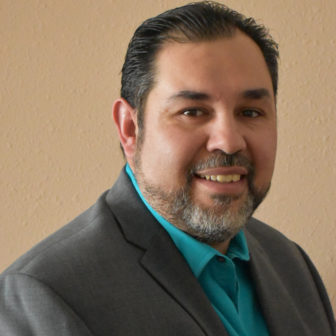
RaksyBH/Shutterstock
.
“You just don’t get it! When I emancipate I don’t want to move away and go off to college. I’m going back home to help my family and my community.” These words were spoken to me by a mixed race, Hispanic and indigenous youth preparing to age out of state foster care.
We had just spent the day touring a college campus and were beginning our five-hour drive back to his home community. We were discussing his plans for after graduation from high school and emancipation from foster care, both happening in about seven months, when our discussion prompted this response.

Benjamin Bencomo
Allow me to provide some background. This young man was a kind soul with a brilliant mind. He had been in foster care for most of the last six years, having had an adoption placement disrupt about a year earlier. Although he had had some interaction with the juvenile justice system in the past, he had managed to defy most of the realities of his peers preparing to age out of foster care.
He was not currently on probation, and although he admitted to having experimented with alcohol and marijuana, he was not struggling with substance addiction. He was well liked by both his peers and teachers in school. He was an A and B student throughout high school and was on track to graduate on time and with honors.
I was a young, well-intentioned but inexperienced social worker, with a passion for working with youth. I had previously worked with youth in juvenile justice and was now working with those preparing to age out of foster care and live independently. A large part of my job entailed teaching life skills, advocacy and resource allocation, and providing support to the young people on my caseload.
I watched as so many of the youth I worked with struggled on all the traditional measures we ascribe to a successful transition to independence. Many struggled with behavioral health concerns stemming from trauma they had experienced. Many engaged in risk-taking behaviors and struggled with substance use and addiction.
Far too much of my time involved checking in with their juvenile probation officers and accompanying them to court. Few graduated high school and even fewer were successful in post-secondary education settings. Many became homeless within a year or two of emancipating from foster care. These are the realities for the majority of youth aging out of foster care still today.
Conflicting plans
While these statistics don’t bode well for former foster youth, I just knew this young man was going to be different. He was going to disprove the naysayers. He was going to get an academic scholarship, and with financial assistance provided through our department using Chafee funding, he was going to attend a large university and get a bachelor’s degree and perhaps a master’s degree.
He was going to move away from negative influences in his hometown. He was going to get a high-paying job as an engineer or a chemist or maybe even in the medical field. He was going to buy his own home and become a “successful adult.”
Except, those were not his plans. These were my plans for him and it became clear at that moment that he and I had different ideas of what a “successful adult” was.
I had just spent most of the day trying to convince this young man that this was the university for him. They were known for their STEM programs and had a great track record of alumni success in graduate school. The on-site housing options were great and I was sure that, with scholarships and Chafee funding, he could live on campus, eat on campus and have his tuition paid for. Best of all, he could be the exception to the dismal “success” rates of his peers in his home community.
“You just don’t get it.” With these words, one of the most impactful lessons of my professional social work career would begin. This young man then educated me about what was important to him as he transitions into adulthood.
Similar to most of his peers, he was questioning his own identity and his place in the world. His identity was deeply rooted in his own ethnic identity development. He had not ruled out college as an option, but his motivation to be successful was not to move away and become a financial success for himself, but rather it was about how he could make a difference in his community.
He was going to be returning to his biological family, as he had a grandparent in declining health, and he wanted to be there to help care for her. He explained that he may also have to start generating an income to help his family financially. He also stated that he felt out of place on the college campus we had just toured, as he noted, “Nobody looked like me.”
The professional lesson I received on that car ride home was quite impactful and one that I ruminated on for years. In fact, it so impacted me that more than about a decade later while pursuing my own doctoral education, I decided that my doctoral dissertation research would include an exploration of needs of ethnic minority former foster youth as they transition into adulthood.
What I discovered was that this young man was not alone. After coding the interviews I engaged in with these youth, I found that, for this subset of the population, four main themes emerged. Two were consistent with common benchmarks employed to gauge a successful transition into adulthood, namely education and financial solvency. However, just as important for ethnic minority former foster youth were family and community.
This is the reality for many ethnic minority former foster youth. Although as educators and practitioners we may be well intentioned and may have very legitimate reasons for discouraging reconnection with their biological families, most youth still yearn for the connection to their family of origin and ultimately, they seek them out.
What we should be doing
Rather than spending our time and energy discouraging this connection, perhaps we should spend it on providing education and support to the youth so that they can plan to do so safely allowing for renegotiation of relationships, in a way that doesn’t revictimize them. For many youth, this reconnection is necessary for developing their individual identity. For some, identity is rooted in family, in history, in culture and in community, and is what many ethnic minority youth desire.
The financial incentives and support provided to foster care alumni to support their higher educational pursuits is incredibly important. In fact, with the ever-increasing cost of higher education, we need to explore ways to expand support programs for former foster youth seeking this path. New Mexico has done so, offering a tuition waiver for all former foster youth and is working toward providing this for all young people in the state.
However, we must also recognize that a bachelor’s or master’s degree is not the only way for a former foster youth to be successful. Trade schools, apprenticeships and job placement programs within their community of origin should also be explored as a means to support a successful transition.
For many rural and ethnic minority former foster youth, it is not about escaping their home communities but rather about better understanding them, engaging in them and serving their families and communities. Our culture of individuality has discouraged the sense of community that so many long for.
Individual economic success can be supported, but cannot be the only measure we apply to a successful transition into adulthood. Perhaps we need to reconsider independent living for former foster youth and allow for an exploration of how interdependence and a sense of belonging within their communities of origin can also be deemed a successful transition for youth aging out of foster care across the country. Perhaps only then will we begin to “get it.”
Benjamin Bencomo is an assistant professor of social work at New Mexico Highlands University. He is also a licensed clinical social worker and licensed independent social worker in New Mexico, with an extensive professional practice history working with youth in behavioral health settings, child welfare and juvenile justice.



























